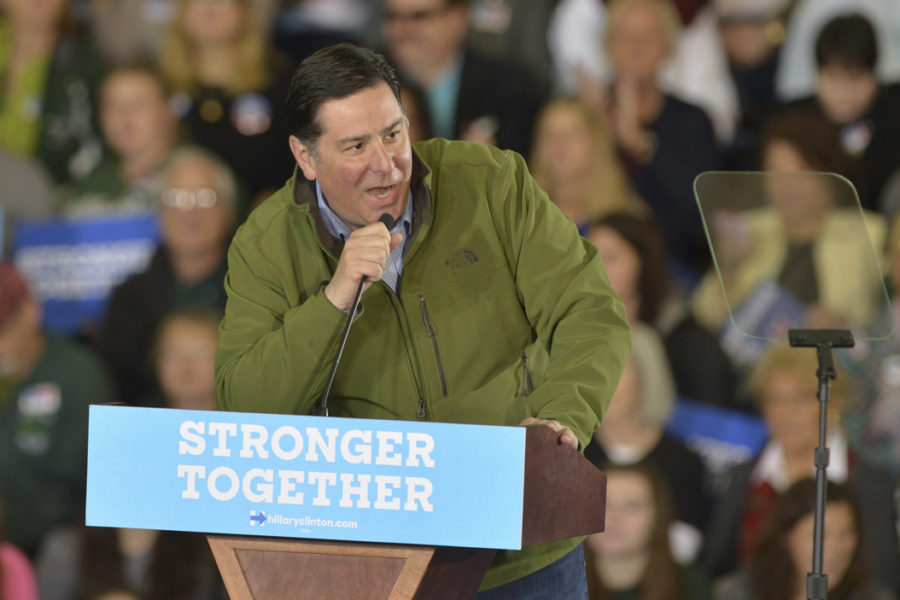Joining in national trends, Pittsburgh Mayor Bill Peduto declared Tuesday the Cities’ Immigration Day of Action — a declaration of solidarity with immigrant families around the city and nation.
The U.S. Conference of Mayors organized the mostly-symbolic event, which included several cities across the country such as Los Angeles, Seattle and Anaheim, California. Peduto said Monday that in light of the current presidential administration’s increased efforts to halt immigration from several countries in the Middle East, this was an important stance for the city.
“If the latest enforcement policies [by the federal government] were indeed about preserving public safety, we would be using our precious resources to pursue criminals who are a threat to our community, not pursuing parents with young children, sowing distrust and discord,” Peduto said in a press release.
Other mayors echoed this sentiment, calling on the federal government to respond to the Day of Action by ceasing anti-immigration efforts.
“[Today] we are standing alongside our police chiefs, our faith leaders, our legal advocates, our business leaders and community advocates to reaffirm our commitment to our immigrant residents,” Los Angeles Mayor Eric Garcetti said in a conference call among select mayors and the press.
President Donald Trump issued an executive order in late January suspending immigration to the United States from seven Muslim-majority countries — Libya, Somalia, Iraq, Iran, Syria, Sudan and Yemen — for 90 days, all refugees for 120 days and Syrian refugees indefinitely.
According to the Pitt Factbook, 61 out of 3,012 international students at Pitt are from one of the five banned countries — none are from Yemen or Somalia.
Pittsburgh is not a sanctuary city, and state-level legislation in the Pennsylvania House of Representatives and Senate might threaten any consideration by Peduto to become one. Two bills were put forth in February to penalize municipalities and universities in Pennsylvania that declared sanctuary status.
Pennsylvania Sen. Guy Reschenthaler, a Republican from Jefferson Hills, proposed the city bill — referred to as the Municipal Sanctuary and Federal Enforcement Act — and Rep. Jerry Knowles, a Republican representing three counties in the state, sponsored the anti-sanctuary campus bill called HB14.
Peduto did not talk about Pittsburgh’s sanctuary city status on Monday, but he reiterated the actions the city has already taken to ensure that Pittsburgh immigrants feel safe in their respective neighborhoods.
The Pittsburgh Bureau of Police adopted an “Unbiased Policing” policy in 2014 that has the bureau work with all federal agencies to report and arrest undocumented immigrants only after they’ve been detained for an unrelated crime.
At Pitt, students have been petitioning for the university to formally become a sanctuary campus. Although the administration has listened to their plight and responded with statements that the University will protect its students, they have been hesitant to make the sanctuary status official. Chancellor Patrick Gallagher explained his trepidation on the issue during the last University Senate Council meeting Feb. 22.
“Making a preemptive statement about our intent on how we would react to a hypothetical change in immigration policy will have some value to some people because it can be viewed as reassuring,” Gallagher said at the meeting. “But it also will have consequences. In some respects, it could narrow our options going forward.”
Gallagher was concerned about the possible repercussions of declaring Pitt a sanctuary campus. Several legislators have called for a halt in federal funds to all public colleges that make such claims.
Although both Peduto and Gallagher are hesitant to say how the University will respond to a change in immigration policy, Peduto said he plans to continue welcoming the city’s occupants as neighbors.
“Pittsburgh will continue to embrace long-time residents and newcomers alike,” Peduto said.
Amanda Reed contributed reporting.


